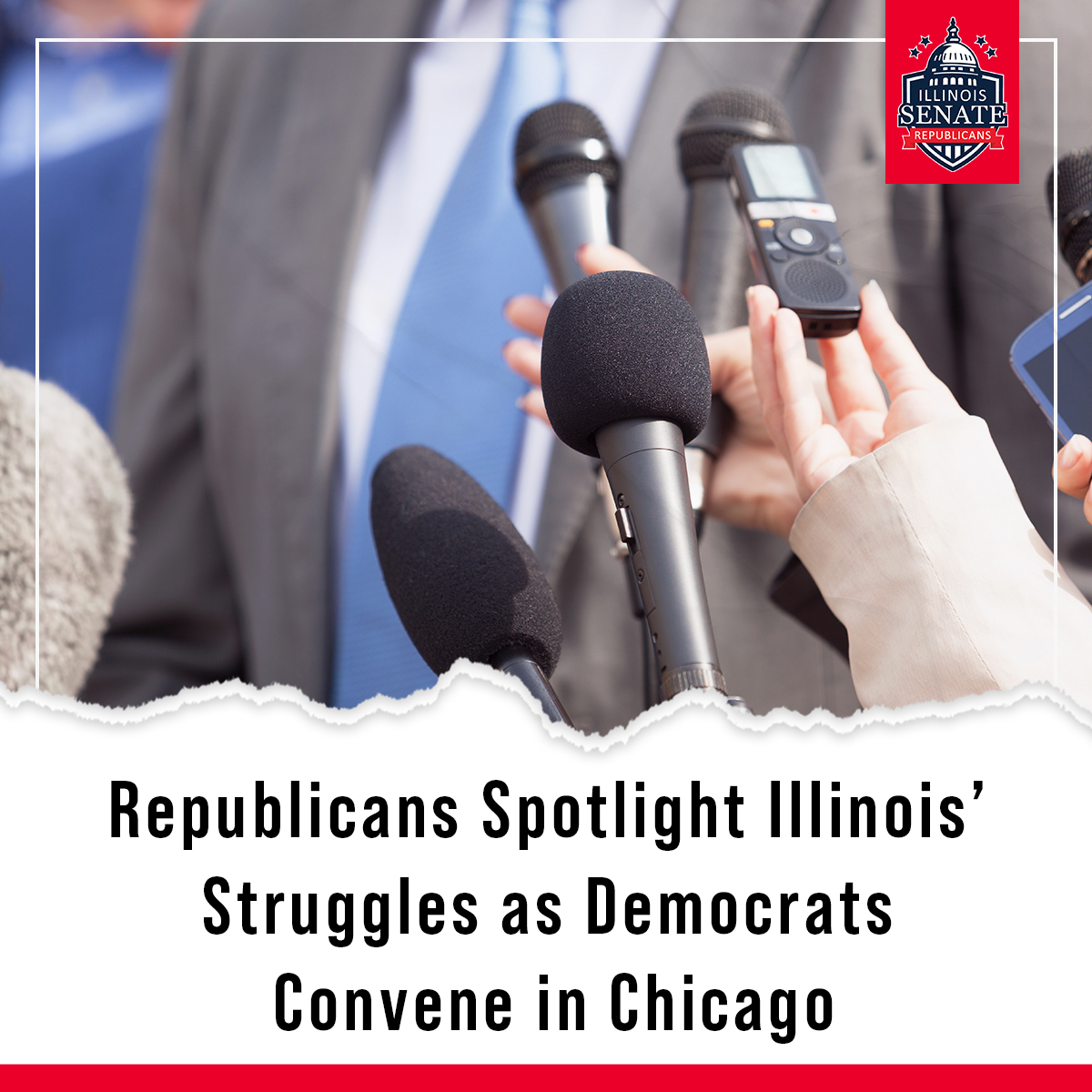In the coming days, Democrats from across the nation will gather in Chicago for the Democratic National Convention, an event that has drawn on local, state, and federal taxpayer resources to host and safeguard the thousands expected to flock to Illinois’ largest city. As Democrats prepare to tout what they have “delivered” in Illinois, members of the Senate Republican Caucus held a Zoom press conference on Friday, August 16, to scrutinize the real impact of Democratic policies on the state.
As the cost of living continues to soar, many families are struggling to afford basic necessities such as groceries, childcare, and daily essentials. Lawmakers pointed out that despite these challenges, the administration has raised taxes by $1 billion to fund $1 billion in spending on programs for non-citizens.
During the press conference, lawmakers highlighted Illinois’ reputation as one of the least tax-friendly states in the country. They expressed frustration that as families struggle to make ends meet they face higher taxes rather than relief, making Illinois an increasingly difficult place to live and work. They also noted that Illinois now has the third-highest unemployment rate in the nation, yet state leadership continues to impose job-killing taxes, further compounding financial hardships.
Public safety was another major concern raised by legislators. Since 2019, major crimes in Chicago have surged nearly 60%, with an 18% increase in the past year alone. Legislators criticized Pritzker’s “catch and release” policies, which they say have led to the release of dangerous offenders, putting communities at risk.
Lawmakers also expressed disappointment over the recent decision not to extend the Invest in Kids scholarship program. This program provided thousands of students from low-income families with opportunities to attend schools that better meet their educational needs. The decision to end it, they argued, has left many families scrambling to find alternatives as the new school year begins.
Legislators called for a reevaluation of state priorities, urging the administration to focus on the needs of Illinois residents rather than on policies they believe are failing to address the state’s pressing issues.

Comments are closed